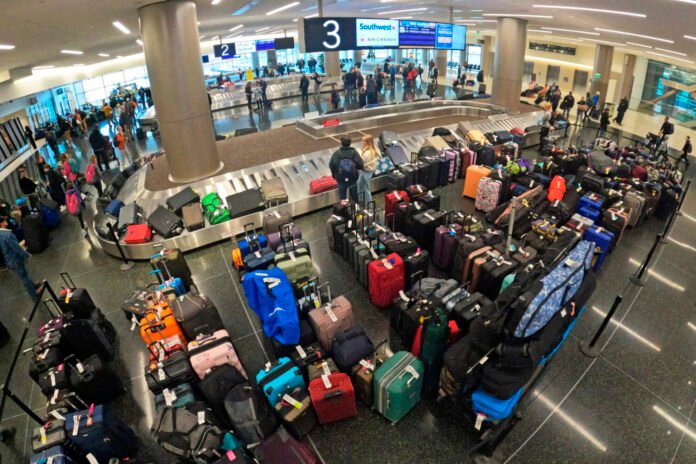
Japan’s Haneda Airport has achieved an unprecedented milestone: it hasn’t lost a single piece of luggage in 30 years. This remarkable feat has garnered praise from travelers worldwide, with many wondering how they maintain such exceptional efficiency.
D K Ghatani, CEO of Sikkim Trek and Expeditions, lauded this achievement, emphasizing its significance for the aviation industry. He believes that airports globally, including those in India, can learn valuable lessons from Haneda Airport’s success.
The key to Haneda Airport’s flawless luggage handling lies in its meticulous operational strategies. Advanced technologies, stringent protocols, and highly-trained staff play pivotal roles in ensuring the smooth flow of luggage from check-in to retrieval.
At Haneda Airport, cutting-edge baggage handling systems track each piece of luggage with precision. Automated processes minimize human errors, reducing the risk of mishaps during transit. Additionally, rigorous security measures safeguard against theft or tampering, providing travelers with peace of mind.
Furthermore, Haneda Airport prioritizes staff training and development to maintain its impeccable service standards. Employees undergo rigorous training programs to hone their skills in baggage handling, customer service, and conflict resolution. Their expertise and dedication contribute significantly to the airport’s reputation for efficiency and reliability.
Ghatani believes that other airports can replicate Haneda Airport’s success by investing in similar technologies and training programs. By prioritizing efficiency and customer satisfaction, airports can enhance the overall travel experience for passengers.
For travelers seeking a smooth air travel experience, Ghatani offers several tips:
- Plan Ahead: Arrive at the airport well in advance of your scheduled departure time to allow for check-in and security procedures.
- Pack Light: Minimize luggage to reduce the risk of lost or misplaced items. Carry essential belongings in a compact, easy-to-manage bag.
- Label Luggage: Clearly label your luggage with your name, contact information, and destination address to facilitate identification and retrieval.
- Stay Informed: Stay updated on your flight status and any potential delays or disruptions. Utilize airport apps or online resources for real-time information.
- Be Vigilant: Keep a close eye on your belongings throughout your journey and report any suspicious activity or concerns to airport staff.
To further enhance the efficiency of baggage handling and overall airport operations, airports can also implement innovative solutions such as RFID (Radio Frequency Identification) technology. RFID tags attached to luggage can provide real-time tracking information, allowing staff to monitor the location of each bag throughout the entire journey. This technology minimizes the risk of misplaced or lost luggage and enables swift retrieval in case of any discrepancies.
Additionally, investing in state-of-the-art scanning and security equipment can bolster airport security measures while streamlining the screening process for passengers. Advanced X-ray machines and explosive detection systems can quickly identify any potential threats within luggage, ensuring the safety of all travelers and airport personnel.
Furthermore, airports can focus on improving the overall passenger experience by offering amenities and services that cater to their needs. Comfortable seating areas, free Wi-Fi access, and a variety of dining and shopping options can make the airport environment more enjoyable for travelers during their wait times. Additionally, implementing self-check-in kiosks and automated baggage drop-off systems can expedite the check-in process and reduce wait times at counters.
In terms of staff training, airports should prioritize customer service and conflict resolution skills to ensure that employees can effectively assist passengers and address any concerns or issues that may arise. By fostering a culture of professionalism and courtesy among staff members, airports can create a positive and welcoming environment for travelers.
Moreover, collaboration between airports, airlines, and government agencies is essential for implementing seamless travel protocols and standards. By establishing clear communication channels and sharing information, stakeholders can work together to address challenges and improve overall efficiency and safety within the aviation industry.
In conclusion, Haneda Airport’s remarkable achievement of not losing a single piece of luggage in 30 years serves as a testament to the importance of efficient operational practices and advanced technologies in the aviation industry. By learning from Haneda’s success and implementing similar strategies, airports worldwide can enhance their performance, provide better services to passengers, and ensure a smoother travel experience for all.
